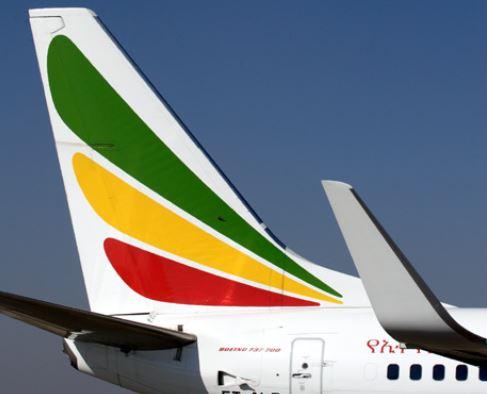
Ethiopian Airlines plans to compete against major non-African carriers partly by offering greater connectivity and convenience for intra-African passengers, Ethiopian CEO Mesfin Tasew said.
Together with other African airlines, Ethiopian is facing increasing competition from external carriers, notably Emirates, Qatar Airways and Turkish Airlines, which all have major ambitions in the continent. At present, Tasew noted, 71% of traffic between Africa and the rest of the world is carried by non-African airlines.
Ethiopian is stepping up its efforts to compete with these carriers, notably through scheduling convenience. Intercontinental flights typically arrive in Addis Ababa in the morning and onward-bound passengers are then distributed throughout the morning to Ethiopian’s 63 African destinations. To improve this connectivity, Ethiopian is developing a third daily bank of flights serving African destinations.
The airline has stakes in several other African carriers in Togo, Malawi, and Zambia and partnering with them helps the company to expand its reach to smaller African cities that might be uneconomic for larger carriers to service.
This is also helping eliminate an old problem of traveling within Africa. Traditionally, a lack of intra-African routes meant that a passenger wishing to travel from West to East Africa, for example, might have to make a connection in cities as far away as London or Paris.
Ethiopian is, for example, a strategic partner to ASKY of Togo, in West Africa. The latter airline now operates into 25 cities in West and Central Africa, removing the need for a lengthy detour via Europe and improving connectivity in those regions.
Meanwhile, the replacement of Ethiopian Airlines’ civilian chairman by a military officer will not affect the running of the carrier, Tasew said. Speaking in London June 6 to mark the 50th anniversary of Ethiopian’s services to the UK capital, Tasew said the resignation as chairman of respected aviation veteran Girma Wake and his replacement by Lt. Gen. Yilma Merdasa would not change the way in which the airline conducted its business.
“The executive management is intact. We don’t anticipate any change,” Tasew said. “The new chairman will not alter that. We’ll work with him; he’s a pilot, he knows about aviation, but from the military side. But we don’t expect him to intervene or interfere in day-to-day management.”
Ethiopian is generally regarded as the most consistently successful airline in Africa. One factor behind this is that, although the carrier is state-owned, Ethiopian governments have traditionally taken an arm’s-length position, allowing the airline’s professional management to work unhindered.
In many African nations, governments interfere with the running of state-owned carriers.
Concerns had been raised that the appointment of a military officer indicated greater government involvement in Ethiopian’s operational affairs. Speaking to Aviation Daily, Tasew said that the running of the airline would continue as before. Only when major decisions were required, such as the signing of contracts for new aircraft, would those go to the board for their blessing.





